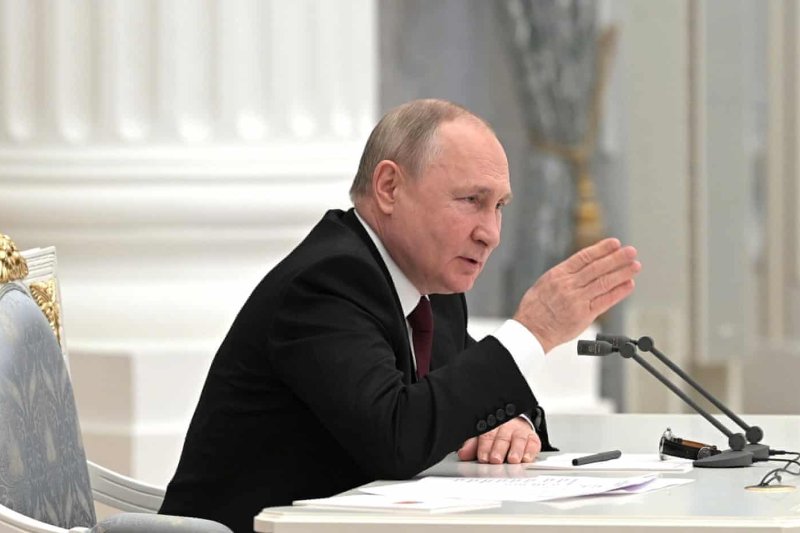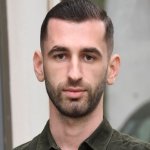Putin Recognizes Ukrainian Separatist Regions Donetsk, Luhansk as Independent
Following a lengthy speech on Russian state TV, Russian President Vladimir Putin signed decrees that recognized the "independence and sovereignty" of two eastern Ukraine provinces, Donetsk and Luhansk.
In his address, Putin rejected the idea of Ukrainian nationhood, calling it “madness” that the country had independence and claiming incorrectly that the country was only the product of power-brokering during the beginning of the Soviet Union.
“We have every reason to say it’s Bolsheviks and Vladimir Lenin that created Ukraine,” Putin declared, arguing that “modern Ukraine was completely created by Russia.”
Putin directly threatened pro-democracy activists and civil servants who had led the pro-democracy push in the country after the 2014 revolution ousting a pro-Russian government.
"We know their names, and we will find them and bring them to justice,” he said.
Putin claimed, without evidence, that Ukraine was preparing to develop its own nuclear weapons that could threaten Russia.
Ukraine had been an independent country and a member of various imperial blocs, including the Russian empire, for centuries before becoming a member state of the Soviet Union during the 20th century. Historians are in broad agreement that there has long been a linguistic and cultural Ukrainian identity distinct from Russia.
A recognition of Donetsk and Luhansk as independent states has major implications. The Russian-backed rebels fighting the Ukrainian military there do not control all the territory they claim. Russian recognition of the full claim sets the groundwork for military support into Ukrainian territory.
It is unclear if increased Russian support for the would-be Donetsk People’s Republic and Luhansk People’s Republic would constitute a Russian invasion of Ukrainian territory that would trigger severe sanctions from the U.S. and European Union. Russia has supported separatists in the region and directly sent troops on the ground to fight in those provinces since instigating conflict there in 2014.
Biden, advisers meet on Ukraine
President Joe Biden, who had nothing on his public schedule for Presidents Day, spent the holiday weekend meeting with members of his national security team as Russian troops ratcheted up military drills at Ukraine's borders.
Putin's televised remarks came as Biden met with members of his national security team at the White House. Vice President Kamala Harris, Secretary of State Antony Blinken, Defense Secretary Lloyd Austin, Homeland Security Secretary Alejandro Mayorkas, and General Mark Milley, chairman of the U.S. Joint Chiefs of Staff, were also in attendance, according to a White House official who spoke on condition of anonymity in order to discuss details of the meeting. The president is also being regularly briefed on developments on the unfolding crisis in Ukraine, according to a White House official.
Ukrainian President Volodymyr Zelenskyy tweeted shortly after Putin's speech that he'd spoken with Biden and expected to talk with British Prime Minister Boris Johnson. The White House confirmed Biden and Zeleneskyy talked for 35 minutes.
The White House said Sunday that Biden agreed "in principle" to meet with Putin after Blinken's scheduled meeting with his Russian counterpart on Thursday, provided that Moscow does not invade Ukraine. It was unclear whether Putin's expected recognition of the independence of the breakaway regions of Ukraine would change plans for those meetings.
A U.S. official said such a move by Putin would be “condemnable.”
“If carried out, this would again result in the upending of the rules-based international order, under the threat of force,” Michael Carpenter, the U.S. ambassador to the OSCE, told a special session of the organization in Vienna, according to the Associated Press.
Josep Borrell Fontelles, High Representative of the EU for Foreign Affairs, reacted swiftly, calling Putin's action "a blatant violation of international law, the territorial integrity of Ukraine and the Minsk agreements."
(Source: USA TODAY)














